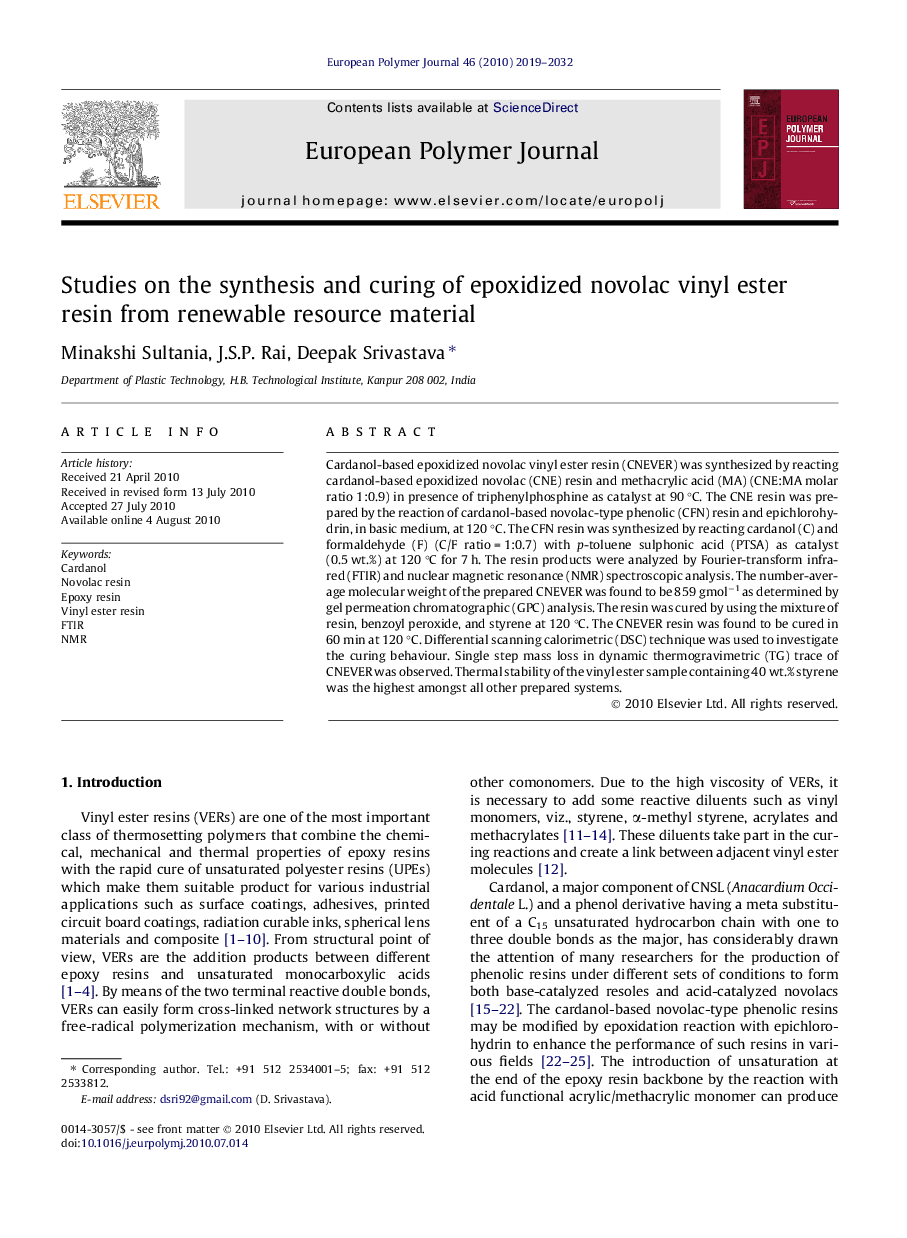| Article ID | Journal | Published Year | Pages | File Type |
|---|---|---|---|---|
| 1402101 | European Polymer Journal | 2010 | 14 Pages |
Cardanol-based epoxidized novolac vinyl ester resin (CNEVER) was synthesized by reacting cardanol-based epoxidized novolac (CNE) resin and methacrylic acid (MA) (CNE:MA molar ratio 1:0.9) in presence of triphenylphosphine as catalyst at 90 °C. The CNE resin was prepared by the reaction of cardanol-based novolac-type phenolic (CFN) resin and epichlorohydrin, in basic medium, at 120 °C. The CFN resin was synthesized by reacting cardanol (C) and formaldehyde (F) (C/F ratio = 1:0.7) with p-toluene sulphonic acid (PTSA) as catalyst (0.5 wt.%) at 120 °C for 7 h. The resin products were analyzed by Fourier-transform infra-red (FTIR) and nuclear magnetic resonance (NMR) spectroscopic analysis. The number-average molecular weight of the prepared CNEVER was found to be 859 gmol−1 as determined by gel permeation chromatographic (GPC) analysis. The resin was cured by using the mixture of resin, benzoyl peroxide, and styrene at 120 °C. The CNEVER resin was found to be cured in 60 min at 120 °C. Differential scanning calorimetric (DSC) technique was used to investigate the curing behaviour. Single step mass loss in dynamic thermogravimetric (TG) trace of CNEVER was observed. Thermal stability of the vinyl ester sample containing 40 wt.% styrene was the highest amongst all other prepared systems.
Graphical abstractCardanol-based novolac epoxy vinyl ester resin (CNEVER) was prepared by using 1:0.9 mol ratio of cardanol-based epoxidized novolac (CNE) and methacrylic acid. The reaction was carried out in the presence of triphenylphosphine (TPP) catalyst (1 phr by weight of the resin) and hydroquinone (200 ppm as inhibitor) at 90 °C in nitrogen atmosphere for about five hours to obtain a product with acid value [29] less than 10. The products were analyzed by Fourier-transform infra-red (FTIR), nuclear magnetic resonance (NMR) spectroscopic analysis and gel permeation chromatographic (GPC) analysis. The prepared CNEVER was cured in 60 min at 120 °C which was obtained by differential scanning calorimetric (DSC) analysis.Figure optionsDownload full-size imageDownload as PowerPoint slide
